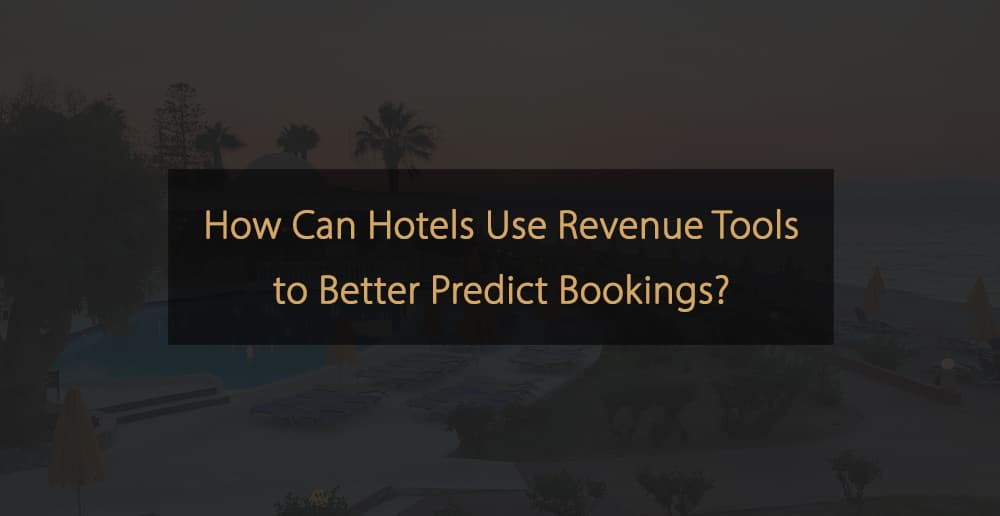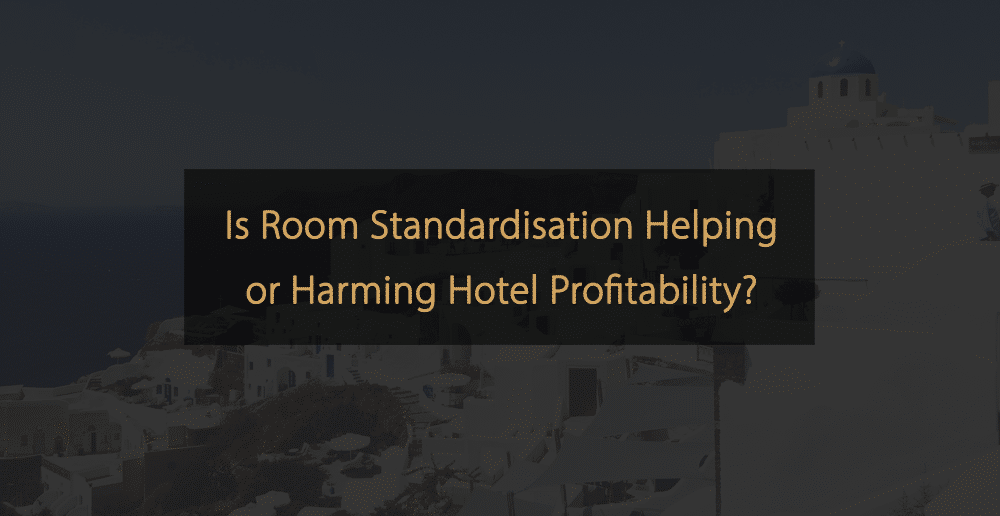Question for Our Revenue Management Expert Panel:
What Forward-Looking Data Should Hotels Use to Understand Guest Behavior and Upcoming Trends?
Industry Expert Panel
Our Industry Expert Panel exists out of professionals within the hospitality & travel Industry. They have comprehensive and detailed knowledge, experience in practice or management and are forward-thinking. They are answering questions about the state of the industry. They share their insights on topics like revenue management, marketing, operations, technology and discuss the latest trends.
Our Revenue Management Expert Panel
- Nikolas Hall – Principal Owner, N. Hall Consulting
- Chaya Kowal- Cluster Director Of Revenue Management, Potato Head Family
- Damiano Zennaro – Founder, DZ Consulting
- Heiko Rieder – Vice President Business Development, Hirmer Hospitality and Travel Charme Hotels
- Fabian Bartnick – Founder, Infinito & Co-Founder, PerfectCheck
- Alenka McMahon – Managing Director, HOTEL REVENUE SERVICES LIMITED
- Pablo Torres – Director, TEDUKA & Hospitality Consultant, Torres Hospitality Consulting
- Massimiliano Terzulli – Revenue Management Consultant, Franco Grasso Revenue Team
- Dermot Herlihy – Commercial Director, DUKES LONDON
- Diego Fernández Pérez De Ponga – Director of Revenue Management, Palladium Hotel Group
- Ask Our Panel a Question
- Join Our Expert Panel
“There are several sources of data that can be analyzed to create context and better understand and predict guest behavior as well as upcoming trends. Predictive analytics can be used to analyze past customer behavior, identify patterns and trends, and then use those insights to inform future decisions. Examples of forward-looking data include customer reviews, purchase histories, website analytics, surveys, and complaints.
Additionally, hotels can use social media monitoring tools to track customer sentiment, identify emerging trends, and understand what their customers are saying about their services.
I also tend to seek inspiration from external data both at micro and marco levels.
Macro data:
- Global economic forecasts
- Market research reports
- Travel industry reports
- Consumer confidence index
Micro data:
- Local economic and tourism trends
- Weather patterns
- Social media sentiment
- Hotel-specific data as previously mentioned
More often than not, it’s about seeing the big picture and filtering down to the property level.“
“A lot of regions have started to recover after the pandemic, but trends and patterns still aren’t the same and lack consistency. There are still some uncertainties in terms of regulations and fluctuations. This impacts overall flight availability, including prices, and also aspects of people’s travel behavior.
I’d say that the first thing you need to be consistently aware of is the “demand forecast”. It’s becoming harder to predict demand. And therefore it’s important to have tools to help you gain access to as much reliable data as possible – real-time updates, compset changes, forward-looking search data, flight and hotel searches. Plus search traffic on different channels: Meta, OTAs, GDS etc. Likewise, what type of LOS people are searching for and the lead time.
It’s important for your rate shopping tool (real-time intelligence tools) to integrate with your RMS to give you the best picture of the circumstances so that you can take proper action and make better decisions. This will also allow you to spot opportunities and come up with better long-term strategies.
It’s also important to be on top of the latest updates – not only for your hotel’s destination but also for your main geographic markets. What are the “events” that could affect travel behavior?
Flight availability and prices: From the lack of staff in the airline industry to the changes in fuel costs, it all impacts purchasing behavior.
What are the changes in the domestic market? How does the long-haul behavior change? Are there more flights being added to a route that could impact your business?
How are the different geographic markets changing and how can you adapt your offers to get higher conversion rates.
Groups and changes in lead time: In some markets, the FIT conversion lead time has become shorter these days. For example, it’s important to analyze your business trends to see if you need to adjust your group pricing to have a longer lead time base.
Finally, it’s also important to analyze what type of rates guests book: Flexible or nonflexible, and review your policies.”
“There’s a lot of discussion about external data which can be used to better predict guest behavior. Especially when talking about revenue management systems.
External data can be evaluated in pricing and forecasting algorithms, for example, as long as the correlation between data and pricing decisions is scientifically proven. Unfortunately, this correlation is still very difficult to test. I would distrust vendors who are selling external data as additional value to pricing and forecasting decisions.
However, I do believe that some external data like flight booking activities in the destination, market data from non-hotel properties (read “short rentals”), weather forecasts, and online destination searches, could be very useful from a commercial view. And that they could add some valid insight to better understand guest behavior.
Reviews are an external data point that should be taken into consideration and which is easy to track. Hotels should capitalize on reputation management, increasing rates, and moving out from a price-to-price-only comparison. Something OTA is very keen to do but which hotels shouldn’t be trapped in.”
“Generally speaking, there can hardly be enough forward-looking data available to predict demand and booking trends. Any data has the right to exist and can support decisions on pricing. In a perfect world, every hotel would have access to on-the-books data broken down into market segments. From competitive sets, forward-looking and geographically targeted click rates, and impacts from major events and ticket sales.
In reality, however, these data sets are hardly available for secondary destinations. And even more so for tertiary destinations. Or often not even for key marketplaces. However, there are good rate-shopping tools available that can visualize forward-looking demand and hot dates based on a mix of shopped rates, availability, and on-the-books data from competitors.”
“It is not a question of what, it’s a question of relevance. Forward-looking data is currently trendy but we’ve already had it for a decade. Its relevancy is questionable, as in some destinations you don’t get enough data for true relevance. In others, you see that demand is 40% whilst in others it highlights known event dates. It only makes a difference in a small number of scenarios.”
“Better predict – Possess and use data from RMS.
Upcoming trends – Understand data (location, property, product etc).
Understand guest behavior – Working with data from PM, channel manager (pick up, forecast geography, products, and analyze right way).”
“Rate shoppers (scrapping) are getting more and more advanced. Not only do they show the rates of your comp set, but also flight bookings, intention to book, events in your area, etc. All of which gives a much better picture of what’s happening. Checking that data at different points in the future can give a pretty accurate picture of what to expect. But always keep in mind that we’re still in a VUCA environment.”
“It’s useful to combine future internal hotel data on the books, lead time, pace, source of booking, room type, and relative ADR with external data. The pressure of demand on certain markets, measured primarily as occupancy rate and ADR, or secondarily as search volume, can help to intercept dates that require particular monitoring. For example, dates with events. Or it can help you take advantage of opportunities to raise rates or correct any strategic, commercial, or pricing errors.”
“There are so many tools within many of the currently available platforms.
Rate shopping tools were one of the first out the gate. And they continue to be among the primary tools for most hotels. Integrating your hotels on the books where possible also adds more layers of data that can identify trends and guest behavior.
STR Forward drives greater analysis. And maximizing it comes with splitting your segments out and going to a competitive set level. The market level can be somewhat deceptive. Bigger properties have greater flex on contracted rates and promotional offers when compared to smaller properties in a bigger base and giving off the perception of lagging behind.
The OTA’s have developed their analysis tools a lot over the years. And they can really help identify new trends, customers, source markets, spending, adjustment of policies, what to sell, and where. There’s a cumulative impact on revenue generation.”
“I see three aspects to this type of data:
1: Our own trends
2: Compset trends
3: Market trends (source and destination market)
It almost goes without saying that the first, our trends, is the key to our business. It’s the base of our famous forecast. It’s how we see the source markets and how channels are pacing, how our price compares LY(last year) and STLY (same time last year), and our booking curve.
The second one is a crucial piece of data in your daily decisions. It’s going to give you a lot of valuable information about yourself because you’ll know if you’re moving at a slow or fast pace in terms of the overall percentile occupancy in your market. There are some suppliers in the market who will give you access to that information.
Last, but not least, markets.
A) Source Market: This might not be relevant for a hotel located in downtown New York. But imagine you’re a 3,000 rooms hotel in the Caribbean islands. If you’re a large vacation resort in a popular tourist destination then you need to constantly review how your source markets are performing. Likewise, how the economy is going, the inflation rate, currency changes, and even airline ticket prices from that area. All these aspects impact your performance.
B) Destination Market: All hotels must be aware of events and issues affecting their local area. This includes both positives and negatives. You need to monitor your city or area in order to detect patterns in guest behavior.”
Ask a Question & Join Our Expert Panel
Would you like a question to be answered by our Industry Expert Panel? Or would you like to join our community of experts and share your experience, insights, and knowledge with fellow industry professionals? Via the buttons below you can submit a question or submit a request to become part of our expert panel.
More Tips to Grow Your Business
Revfine.com is the leading knowledge platform for the hospitality and travel industry. Professionals use our insights, strategies, and actionable tips to get inspired, optimize revenue, innovate processes, and improve customer experience.Explore expert advice on management, marketing, revenue management, operations, software, and technology in our dedicated Hotel, Hospitality, and Travel & Tourism categories.

















Leave A Comment